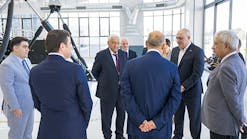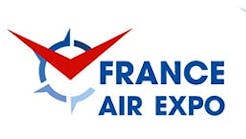Every year I have the pleasure of teaching inspector authorization renewal courses on regulatory compliance topics. This annual ritual has helped me establish some broad opinions about the aviation maintenance industry and the talented individuals supporting the wide variety of fantastic flying machines.
The United States does not show its appreciation for people with innate technical capability. “Blue-collar” businesses and jobs are undervalued except when an essential function is lacking and a replacement is immediately required. Most aviation technicians are not in their youth; many have labored their entire lives to ensure their children do not have to “work with their hands.” The next generation is not being encouraged to follow their talent, they are expected to enter professions with higher monetary returns than aviation maintenance. Thus, native technical aptitude is being lost to other industries – many of which do not have as many opportunities to learn and grow.
The men and women I teach have instinctual talent for restoring or improving functionality in complex equipment and systems, they don’t necessarily have an equal capacity for following rules. Heck, many technicians have learned about aviation safety requirements from a fellow worker not from actually reading the regulations and guidance material. Thus, many do not understand the extent of their power or responsibility. The tendency to “believe” that a regulation requires “thus and so” rather than to read the exact words is strong. Unfortunately, that inclination creates misconceptions and potential violations.
Regulations are written with two basic philosophies. The first is called performance-based: The language of such rules is written in broad terms that allow numerous methods of achieving a definable end. Compliance is judged in line with the old adage, “the proof of the pudding is in the eating.” For example, the performance rules in section 43.13 require the work to be performed using methods, techniques, and practices that return an article to at least its original or properly altered condition. Read carefully, each sentence of the first two paragraphs of this rule requires a maintenance provider (including individual mechanics or technicians) to know what s/he is doing, the tools and equipment used in the accomplishment, and the result of the actions taken. That “freedom” carries responsibility – you can neither blindly follow a manual nor can you deviate from a manufacturer’s instruction, without knowing the consequences.
Alternatively, prescriptive rules are written with specific compliance requirements, leaving little or no room for “doing it another way.” An example is section 43.16, which requires a maintenance provider to follow the manufacturers’ airworthiness limitation requirements (or the approved operations specifications of the operator). If someone wished to perform a mandated airworthiness inspection in another manner than delineated in the manufacturer’s manual, an approval from the FAA would be required. No wiggle room (even if the manual is obviously incorrect).
My talent is communicating the difference between and among the regulations and how business must be conducted – the ability to bridge the gap between regulation and reality. I have devoted so much time to regulatory compliance training because of my desire and need to impart information on aviation safety requirements to the individuals with innate and valuable talents in fixing fantastic flying machines. No matter how talented a person is in mending what is broke, they cannot fulfill their responsibilities without understanding the regulations. The stakes are too high for ignorance: Some violations can result in a permanent ban from working in aviation.
Every aviation technician – young or old, first day or nearing retirement – must spend at least eight hours a year in regulatory compliance training. It is the only method of ensuring a continuing career while (more importantly) protecting the safety of the flying public: read the rules, keep current on advisory materials – don’t ever stop learning.
Sarah MacLeod is managing member of Obadal, Filler, MacLeod & Klein, P.L.C. and a founder and executive director of the Aeronautical Repair Station Association. She has advocated for individuals and companies on international aviation safety law, policy and compliance issues for 30 years.





